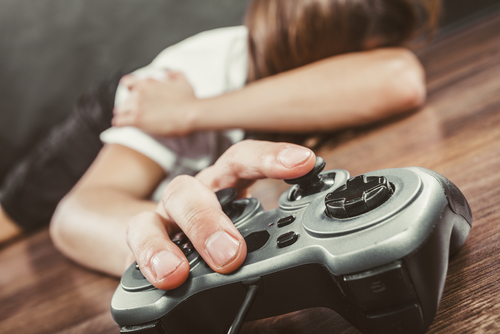Mental illness is isolating. No matter what the diagnosis is, almost everyone who struggles with a mental illness feels bitterly alone in their struggles. Some diagnoses are more isolating than others. As mental illness continues to become part of the mainstream narrative, opening dialogues is helping people feel they are not so alone. Often in treatment, people find great solidarity and comfort in knowing they aren’t the only people in the world who have felt the way that they do, gone through what they have gone through, and experience what they experience. Such a positive connection can be a guiding light of hope in the darkness of loneliness.
Addiction and Depression
Video game addiction is one area where this connection is especially helpful. Today’s video games are connected online where people all over the world can become friends and play games at the same time. Until live and integrated video chatting becomes part of the gaming experience, these ‘friends’ and interactions are nothing more than text on a screen and voices through a headset. Human interaction and connection is consistently proven to be an antidote to mental illness and an essential part of well being. Though video gaming allows for interaction, it doesn’t provide the face to face interaction humans need.
Depression and substance abuse often happen in conjunction with video game addiction. Physical health and mental health can often fade as someone becomes more and more immersed in their video game worlds. In order to stay awake, cope with uncomfortable feelings, or make the video game activity seem more enjoyable, users often turn to drugs and alcohol.
Inquisitr reports that a positive connection was found through video gaming in a study conducted on 10,000 Dutch teens. Sitting alone and interacting only with a digital world can be problematic. However, if people are playing games together in one room while engaging in conversation and participating in one another’s lives, the symptoms are lessened. Additionally, online forums where people have the chance to chat and connect out of the game can be supportive as well, though it is not human to human interaction. “Part of what appears to be curbing video game addiction and depression symptoms,” the article explains, “is the act of posting progress online, commenting on gaming news or simply sharing videos of their shenanigans.”
If you feel you have lost control of your life to gaming addiction, LEAD Recovery Center is here to help. Our treatment programs are designed to welcome anyone seeking to develop new skills and heal from an addiction or other mental health issues. For more information, call 800-380-0012.


